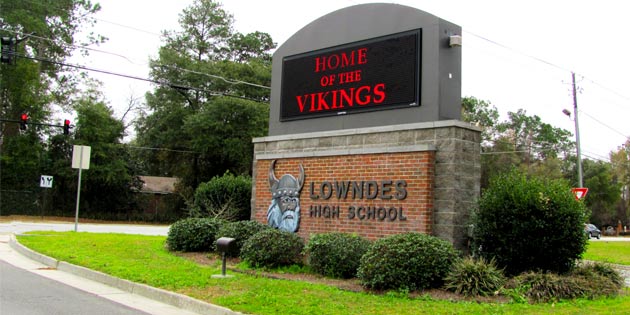
EDITORIAL—In his 2004 seminal tome on the politics of his home state, Kansan and journalist Thomas Frank makes a startlingly accurate forecast for the next decade of politics in What’s the Matter with Kansas? Frank notes that deep in the American heartland, on the vast expanses of the Kansas prairie, a political battle of epic proportions was steeping in this historically progressive Midwestern state. State conservatives solidified a firebrand of conservative, anti-Eastern establishment populism, marked by fiscal restraint and deep-seated wedge issues. Kansas conservative political leaders congealed conservative support around opposition to gay marriage and abortion. Thomas Frank contends that Kansas’s newfound fervent support for Republican politics is merely a proxy of what is happening in the nation at-large. The essence of Frank’s 2004 masterwork can be summarized in the excerpt found below.
Out here [in Kansas] the gravity of discontent pulls in only one direction: to the right, to the right, further to the right. Strip today’s Kansans of their job security, and they head out to become registered Republicans. Push them off their land, and next thing you know they’re protesting in front of abortion clinics. Squander their life savings on manicures for the CEO, and there’s a good chance they’ll join the John Birch Society. But ask them about the remedies their ancestors proposed (unions, antitrust, public ownership), and you might as well be referring to the days when knighthood was in flower (Frank 2004, 67-68).
Today, as it was a decade ago in Kansas, conservative politics continues to inexplicably move to the right, regardless of the issue of the day—ideology for the sake of ideology; a movement devoid of solutions, yet full of principle. To invoke twentieth century Mississippi novelist William Faulkner, a hollow movement replete solely with a gamut of sound and fury.
The question to be gleaned presently is not what the matter with Kansas is, but what is the matter with Mississippi? To discern the future of the southern Republican Party, and, broadly, southern conservatives is to pay to close attention to what transpired in the Hospitality State last Tuesday. In a tough primary run-off, veteran and tenured U.S. Senator from Mississippi, Thad Cochran, routed his Tea Party-backed challenger, State Sen. Chris McDaniel in what’s comported by observers to be the most divisive primary of the 2014 midterm cycle.
Thad Cochran is a soft spoken Mississippi statesman. He was recently and poignantly referred to as the ‘last southern gentleman’—a politician with unrivaled respect, demeanor, and dignity to both friend and foe alike. Sen. Cochran, a moderate Republican in, arguably, the most conservative state in the country, is himself an anachronism from a bygone age; a political relic in his own right, parallel to the old southern Democratic Party, the Planter class, and the country-bumpkin lawyer-legislator. The austere Cochran faced off against an opponent diametrically dissimilar to his own personal style of politics. Chris McDaniel, Cochran’s opponent, the Mississippi State Senator who Cochran himself has called ‘an extremist,’ is an abrasive, uncompromising politico, frequently absconding to a firebrand of ‘white trash’ Mississippi ultraconservative populism.
McDaniel, who was largely favored in Tuesday’s primary contest, typifies the recent Tea Party insurgency into the modern Republican Party. Chris McDaniel is uncompromising, selectively choosing which portions of the U.S. Constitution or the values of American democracy, generally, he readily accepts and repudiates. McDaniel embodies the ideals of the Tea Party contingent of the modern GOP: inflexible, defiant, and incredulous. To say McDaniel was an honorable opponent in defeat would be unnecessarily gratuitous. For McDaniel, following a 6,000 aggregate vote loss, could have bowed out with honor, with dignity; he could have praised his voters and then, for the sake of a united Mississippi GOP, called Sen. Cochran and conceded the race. Instead, McDaniel is considering contesting the primary results in court. Interestingly, McDaniel mentioned President Ronald Reagan at least five times in his nearly ten minute peculiar non-concession speech. McDaniel doesn’t fully grasp that to bow out with honor is the very essence of what makes a statesman just that. That’s what McDaniel should have done when he took the stage Tuesday night. That’s what Ronald Reagan would have done. (In fact, that is exactly what he did at the 1976 Republican National Convention in Kansas City.)
But the Ronald Reagan of Tea Party conservatives is not the same Ronald Regan who governed this country in the 1980s. To the average ‘Tea Partier,’ he’s a demigod, an untouchable; a conservative archetype that can only be viewed through a prism endowed with purposefully cloudy rose-colored glasses. McDaniel noted in his interestingly defiant, sort-of conciliatory speech that, “There is nothing dangerous or extreme about wanting to balance a budget.” That’s true; you’ll hear no disagreement from this author regarding the importance of achieving fiscal budgetary balance. Nonetheless, President Reagan never balanced a budget. In fact, the 1980s were a decade marked with record deficits. President Reagan was a champion for the immigrant, signing into law a federal amnesty program for millions of undocumented workers. And to McDaniel’s take-no-prisoners, “compromise is a dirty word”-style of politics: Ronald Reagan was famous for incessantly working with congressional Democrats and for his close personal relationships with Democratic leaders on Capitol Hill. If this was the McDaniel, the self-proclaimed “Reaganite,” who ran in Tuesday’s Mississippi GOP primary run-off, even this author would’ve coalesced behind him in fervent support. The final irony to McDaniel’s pro-Reagan rhetoric, when President Reagan was in office, Thad Cochran was a trusted ally and like-minded legislator in the U.S. Senate, but now McDaniel claims that Cochran is a ‘liberal’ and bears no semblance to our fortieth president.
Thad Cochran’s victory against McDaniel was not due to the GOP voters in his state, but to the scores of Democratic and independent voters who showed up to the GOP run-off in droves to support the six-term U.S. Senator. Paradoxically, in a state marked with deep racially-motivated partisan polarization, Cochran’s victory is due, in large, to African American’s who hadn’t voted in the low-turnout Democratic Primary earlier in the month. Thomas Frank was right. Kansas, in the center of the American heartland, serves as both a bellwether and a proxy of the nation’s politics as a whole. A decade ago in Kansas, politics began to move inexplicably to the right. Presently, GOP politics in the Hospitality State is exhibiting a very similar trend. Devoid the independent and Democratic voters who showed up to support Cochran over McDaniel, the contest would’ve almost surely been the latter’s.
The result in African American support for Cochran represents a middle road; a political hedging of bets on the part of state Democrats. The Democratic nominee for Senate in Mississippi, former U.S. Congressman Travis Childers will likely find himself in an uphill battle against any Republican nominee. By eliminating the more extreme McDaniel, state Democrats have ensured that a more moderate GOP candidate will be on the November ballot. Concurrently, Democrats have also eliminated almost any chance Childers has at winning the November Senate race against the more moderate Cochran. State Democrats have work in their best interest, while concomitantly and paradoxically against it—such is the rudimentary nature of hedging your bet while seeking a middle ground.
Make no mistake however, black or white, Democrat or Republican, Cochran has fought vigorously for the people of his state in the halls of the American Senate. The former chairman of the very powerful Senate Committee on Appropriations, Cochran ensured the Magnolia State received a hefty share of federal largess. To that end, for every $1 the people of the State of Mississippi pay in federal taxes, they receive $2.83 from Washington; Mississippi receives the greatest benefit from federal taxes in the nation. Further, the Senate is an institution which vests substantial value on seniority. To elect a Ted Cruz-archetype in McDaniel, an abrasive and uncompromising junior Senator, would be counterproductive to the advantages the State of Mississippi has with the very senior Cochran representing them in Washington.
The in-fighting between two candidates in a partisan primary is nothing new for Mississippians. In the old south, twentieth century American political scientist V.O. Key notes that the Democratic Primary was ‘tantamount to election.’ There was no real Republican organization to be had in midcentury Mississippi. A Republican insurgency would begin to galvanize in the mid-1960s (in response to Goldwater’s presidential candidacy in 1964 and resistance to the Civil Rights movement, generally), finally begin to solidify in the 1980s (with the election of Ronald Reagan to the presidency), and further compound in the 1990s (with the leadership of Newt Gingrich and the subsequent Republican Revolution of 1994). At midcentury, the candidate who won the Democratic primary would almost certainly go on to win the low-participation General Election, for the real contest rested in the primary. This is the implicit nature of one-party dominant politics.
In Mississippi in 2014, while both parties, quantifiably, are much closer to a two-party competitive condominium, the dominant Republican Party’s primary is very much tantamount to election, particularly in statewide contests. V.O. Key’s axiom is still very much the rule in deeply conservative Mississippi. In McDaniel we have the classic reactionary demagogue of the old south. To echo Republican strategist Lee Atwater explaining the Southern Strategy in 1981, the McDaniel-type demagogues would resist forced busing, desegregation, and the like at midcentury with a firebrand of racially-charged language. When the vile and blatant ‘race-baiting’ (in the late-1960s) fell out of favor, “dog whistles” became the new normal. Rather than employing a racial epithet, a candidate would speak of ‘states rights’ or the like—but the point was still there in the hearts and minds of the demagogue’s political base, the target audience. By the era of Reagan it was cutting taxes, reforming welfare, and other economic positions with a nuanced effect, articulating the same implicit arguments of the fire-breathing bigoted rhetoric at midcentury, but repackaged under a different guise. In the era of Tea Party politics, the rhetoric has metastasized from simply cutting taxes and reforming welfare to incendiary verbiage typified in Gadsden flags and posters bearing phrases akin to: “I want my country back”—once again, a repackaged philosophy for a new era of politics.
A more representative sample of Mississippi voters repudiated this brand of politics on Tuesday. Not simply a group of hardline conservatives, but independents, Democrats, moderate Republicans, whites, blacks, and other minorities who showed up in troves to GOP polling stations and, in a peculiar electoral coalition, routed the extremism embodied in McDaniel. Thus, what is the matter with Mississippi? The same thing as the rest of the nation, but on steroids—to employ the well understood colloquialism. What is observed in Mississippi is a state Republican Party moving inexplicably further to the right, an ominous sign for the likes of the true remaining Reagan Republicans and Democrats, those who value limited government, self-reliance, respect for political institutions, and working together and crafting solutions that are best for this nation—in the true spirit of our fortieth president. To Tea Partier McDaniel, a broad and diverse coalition of Mississippians answered your extreme demagoguery at the ballot box with, to ironically employ your own movement’s oft-broadcasted adage, ‘we want our country back’—and on that fateful night in Tuesday, they did just that.











